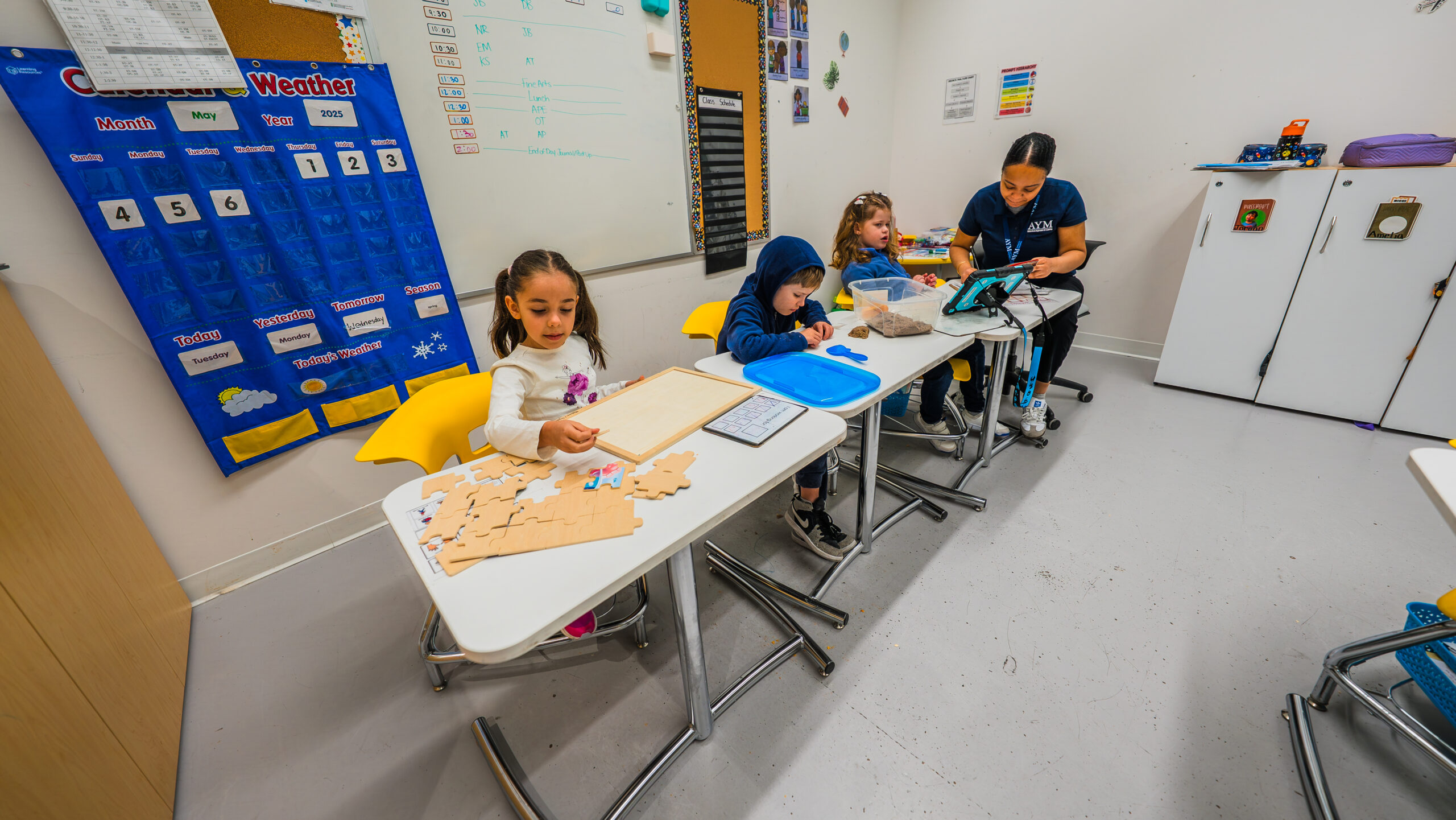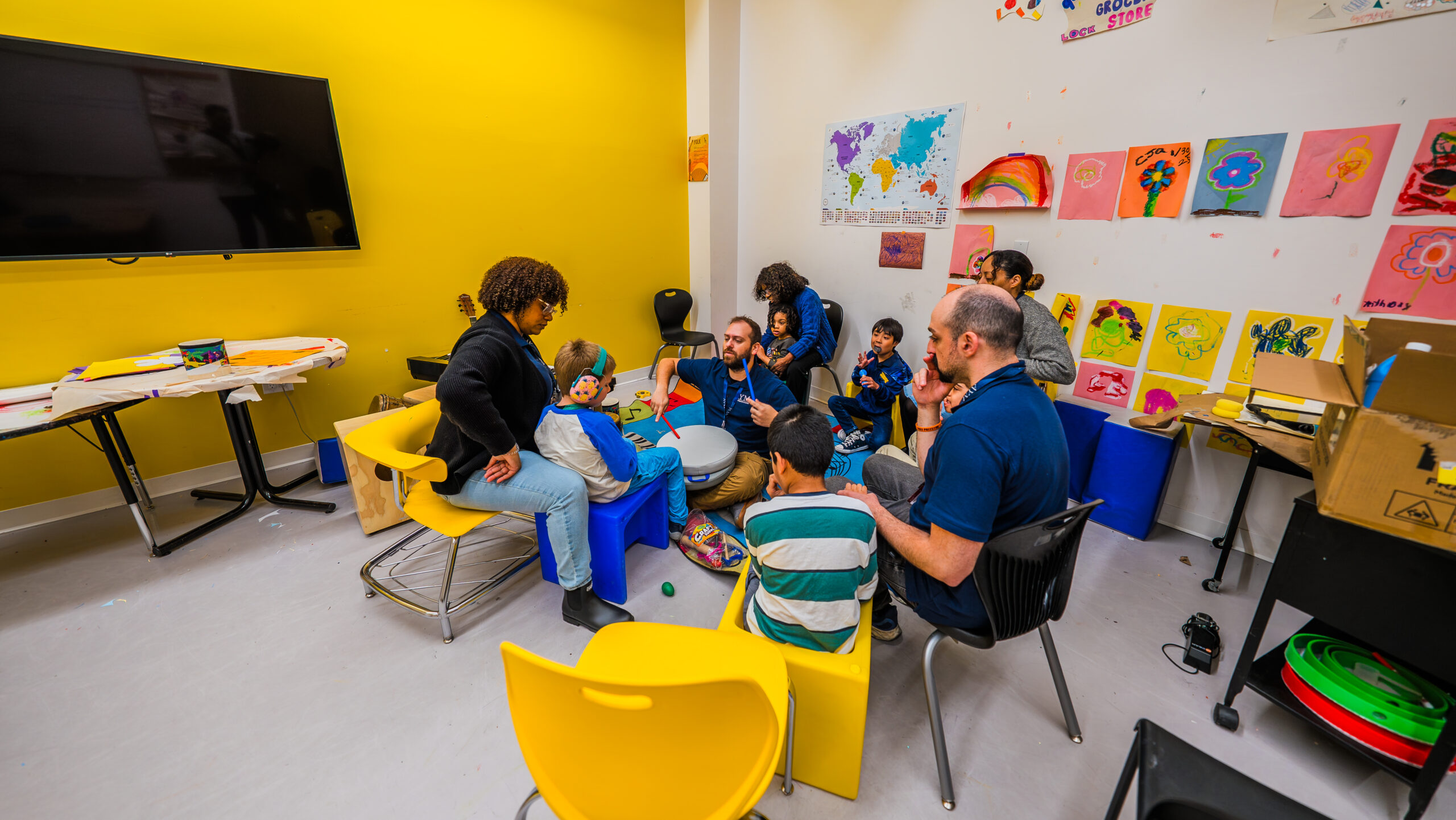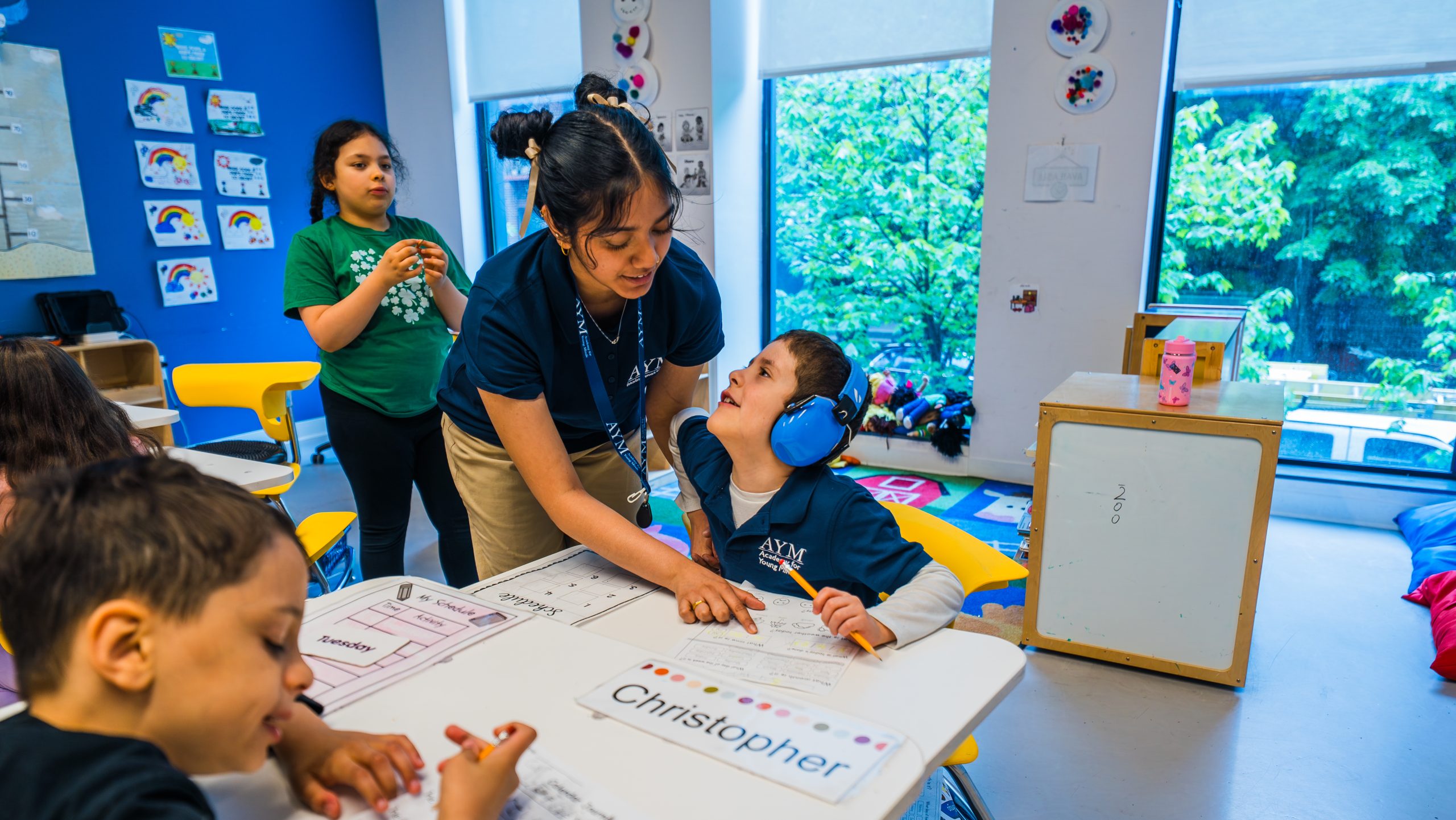What Does a BCBA-Led Academic Program Look Like?
At Academy for Young Minds, an integral aspect of our educational methodology is the BCBA (Board Certified Behavior Analyst) led academic program. Autism education can be complex, and it is imperative that those who educate our children on the autism spectrum have both familiarity with all of the factors that go into teaching these students, as well as expertise in ways to reach them.
BCBAs are professionals with specialized expertise in applied behavior analysis (ABA). They play a pivotal role in applying this knowledge to enhance the educational journey of students with autism. Their comprehensive approach involves a thorough assessment of student behavior, the development of customized learning strategies, and continuous progress monitoring, all of which are fundamental to the success of our academic program.
Individualized Learning Plans
In a BCBA-led program, each student receives a personalized learning plan. These plans are designed based on a thorough assessment of the student’s strengths, needs, and learning style. The BCBA works closely with educators to ensure that these plans are effectively integrated into the student’s daily educational activities.
This collaborative approach is central to our goal of bridging any academic and developmental gaps, facilitating successful integration and participation in the classroom. By tailoring education to each student’s unique profile, we aim to foster an environment where every child can thrive, not only academically but also in their social and emotional development.
Data-Driven Approach
BCBAs rely heavily on data to inform their decisions. They collect and analyze data on student performance and behavior daily in order to determine the best way to educate each child. This data-driven approach ensures that the strategies and interventions used are effective and are adjusted as needed for optimal learning outcomes.
Collaborative Environment
BCBAs work in tandem with teachers, therapists, and parents. This collaborative approach ensures a holistic understanding of each child’s needs, both academically and socially. Regular meetings and communications between all involved are a staple in a BCBA-led program, fostering a supportive and cohesive environment. Parents and caregivers play a key role in their child’s program, as the BCBA provides them with tools and techniques to support development at home.
Behavior Support Strategies
A significant part of a BCBA’s role is to develop and implement behavior support strategies. These are crucial for addressing challenging behaviors that might interfere with learning and socializing successfully. The strategies are proactive, focusing on developing skills like communication, social interaction, and self-regulation. BCBAs continuously evaluate and adjust these strategies to align with the student’s evolving needs.
Continuous Professional Development
In a BCBA-led program, you will see emphasis on the importance of ongoing professional development for educators. BCBAs provide training and support to teachers, ensuring they are equipped with the ABA techniques their students require and understand the specific needs of their students on the autism spectrum.
Inclusive and Adaptive Curriculum
The curriculum in a BCBA-led program is adapted to meet the diverse needs of students with autism. It includes a range of educational materials and activities that cater to different learning styles and abilities and, at Academy for Young Minds, continues to align with the Common Core State Standards. The goal is to provide a learning environment where every student can thrive, at school and beyond.
The presence of a BCBA in an academic program can significantly enhance the educational experience of students with autism. Students show improved academic performance, better social interactions, and a decrease in challenging behaviors. Moreover, they develop skills that are essential for lifelong learning and independence.
A BCBA-led academic program is a dynamic, data-driven, and personalized approach to education. If this is an educational path that seems right for your child on the autism spectrum, start here.



